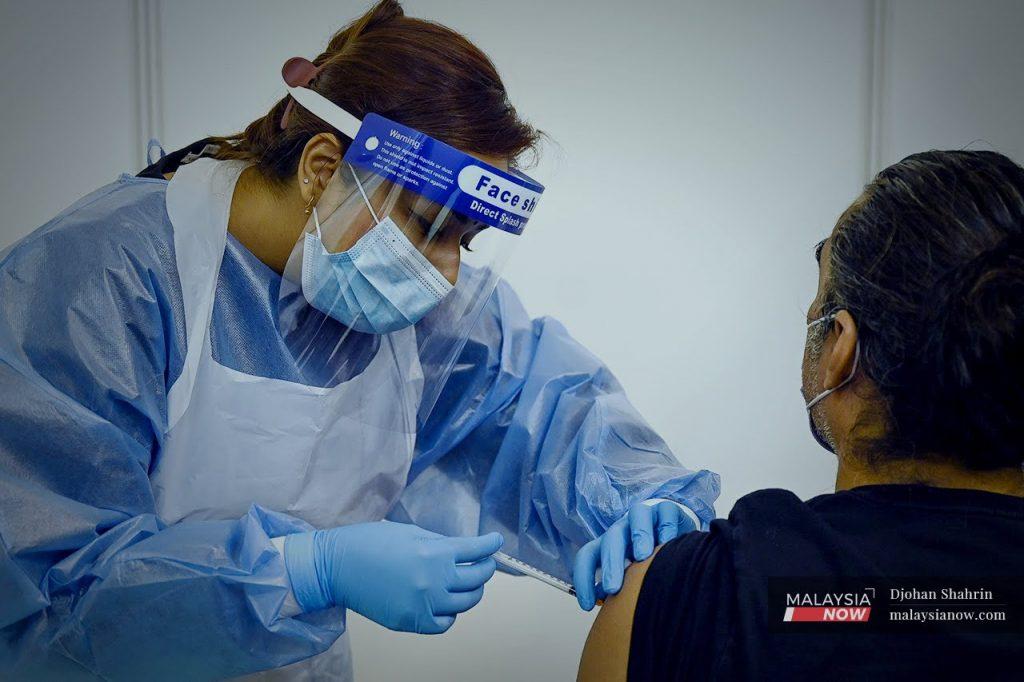Mandatory Covid-19 vaccination?
All Malaysians have a part to play in achieving the herd immunity required for normalcy to return.
Just In
On June 15, the prime minister proposed a four-phase Covid-19 recovery plan which will tentatively last until the end of the year. It is a phased exit strategy for the country to steer out from the pandemic based on three indicators, namely the number of daily Covid-19 infections, the capability of the public healthcare system and the percentage of population that has received two doses of vaccine.
This simply means that the movement restrictions will remain in implementation so long as Covid 19 cases do not decline sufficiently.
As of June 16, around 14.6 million (62.50%) of Malaysians had registered for vaccination and around five million had received their Covid-19 doses. Malaysia’s daily vaccination rate also surpassed the 200,000 level for first time on June 15.
Making Covid-19 vaccination mandatory?
Many countries are pinning their hopes on Covid-19 vaccines as the solution for normalcy. Currently, the Malaysian government has no plan to make Covid-19 vaccines mandatory. However, the government may switch its game plan to a mandatory vaccination policy so that the desired herd immunity levels can be achieved within the designated time frame. The Covid-19 vaccinations should be made mandatory once the vaccine uptake is low, Covid-19 cases get out of hand and when hospital capacity is at a critical level.
Indonesia made Covid-19 vaccines compulsory early this year. On June 16, the Moscow city authorities also made vaccination mandatory for more than two million workers with public facing roles in the Russian capital. On the same day, vaccination was made compulsory for England’s care home staff.
The greater the public health threat, the more liberty ought to be restricted
The step to making Covid-19 vaccination mandatory interferes with individual liberty and autonomy. However, individual liberty has an external component encompassing human interaction. As such, mandatory vaccination should be considered when it is necessary for the achievement of public goals. The step towards mandatory vaccination can be justified when it prevents serious harm to others in the community. Having said that, the government should make data available to demonstrate that the vaccine being mandated has been found to be safe.
In fact, Article 5(1) of the Federal Constitution provides that no person shall be deprived of his life or personal liberty, save in accordance with law. It would appear that the government can make vaccination mandatory pursuant to Sections 11(1) and 11(3)(a) of the Prevention and Control of Infectious Diseases Act 1988.
These provisions provide that it shall be lawful for any authorised officer to direct any person living in an infected local area to subject himself to treatment or immunisation. Anyone who refuses to comply with Section 11(3)(a) commits an offence. It is even provided for under Section 11(4) that it shall be lawful for an authorised officer to use such force, with or without assistance, to ensure compliance with directions issued under Section 11(3)(a).
Mandatory vaccination is not desirable as it often underlines failing vaccination programmes and policies by the government. Many are also concerned that making vaccines compulsory is counter-productive and will only heighten vaccine hesitancy which will defeat the aim of achieving herd immunity. Yet, if we do not advance in levels once vaccines are fully and freely available, harsher policies and certain degrees of compulsion or mandatory Covid-19 vaccination may well be necessary.
At this point in time, the country is progressing quite well in terms of the inoculation of its population. However, the vaccine uptake by the population remains relatively low and we have not seen substantial reductions in the daily number of Covid-19 cases.
The government should implement drastic steps to significantly shore up registrations for Covid-19 vaccination during this critical period. It is true that the compulsion or restrictions of liberty should be as minimal as necessary to achieve the goal, but perhaps it is time to make Covid-19 vaccination mandatory.
We need the country’ economy to thrive before businesses collapse and there is no other way than to get the population immunised. All Malaysians have a part to play in achieving the herd immunity required for normalcy to return. Perhaps desperation for normalcy and freedom is the most effective tool in enhancing vaccine uptake and achieving herd immunity.
We do not have much time to spare – the clock is ticking.
Leonard Yeoh and Pua Jun Wen are practising lawyers.
The views expressed in this article are those of the author(s) and do not necessarily reflect the position of MalaysiaNow.
Subscribe to our newsletter
To be updated with all the latest news and analyses daily.
